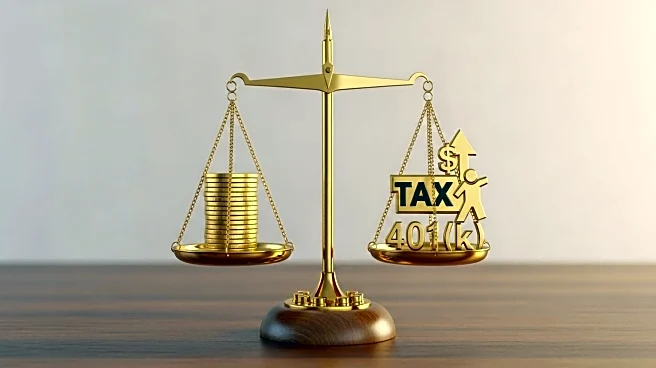What's Happening?
Starting next year, a new rule under the Secure 2.0 retirement law will affect high earners making 'catch-up contributions' to their 401(k) or other tax-deferred workplace retirement plans. This rule will eliminate the immediate tax break for these contributions, which will now be treated as Roth 401(k) contributions. This change applies to individuals over 50 who earned more than $145,000 in FICA wages in the prior year. While the contributions will be taxed upfront, they will grow tax-free and can be withdrawn tax-free under certain conditions. The rule will not affect those earning below the $145,000 threshold.
Why It's Important?
The rule change has significant implications for high earners who rely on catch-up contributions to boost their retirement savings. By taxing these contributions upfront, individuals may face higher tax rates during their peak earning years. However, the shift to Roth 401(k) contributions offers the advantage of tax-free growth and withdrawals, providing more flexibility in retirement. This change could influence retirement planning strategies, particularly for those nearing retirement age. Employers and financial advisors will need to adjust their guidance to accommodate these new regulations.
What's Next?
As the rule takes effect, affected individuals may need to reassess their retirement savings strategies. Employers offering retirement plans will need to ensure compliance with the new regulations and may need to provide additional resources or options for employees. Financial advisors will play a crucial role in helping clients navigate these changes and optimize their retirement savings plans. The IRS and financial institutions will likely provide further guidance as the implementation date approaches.









